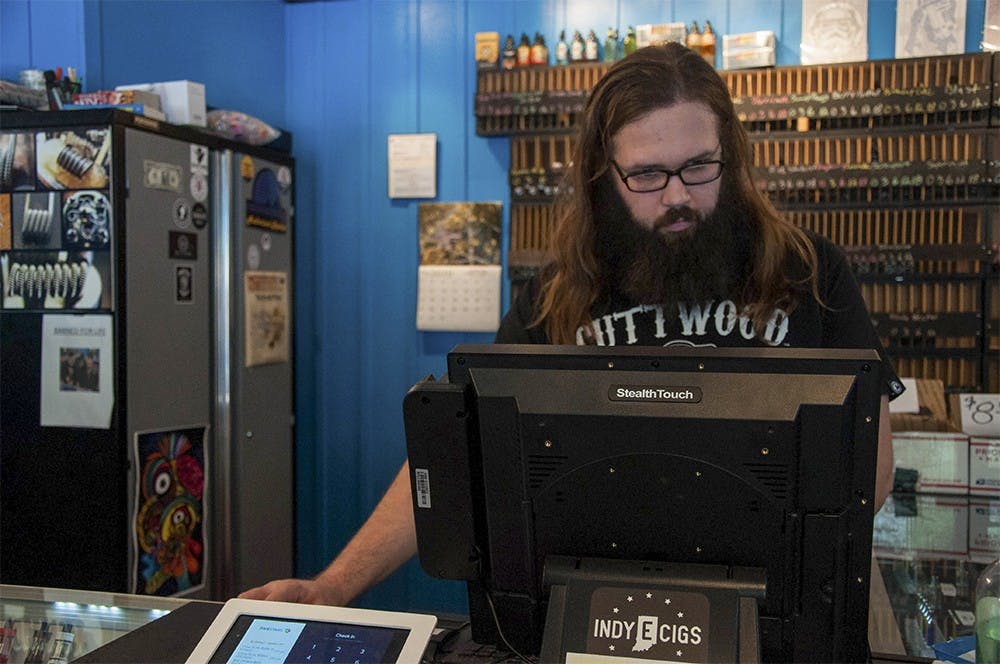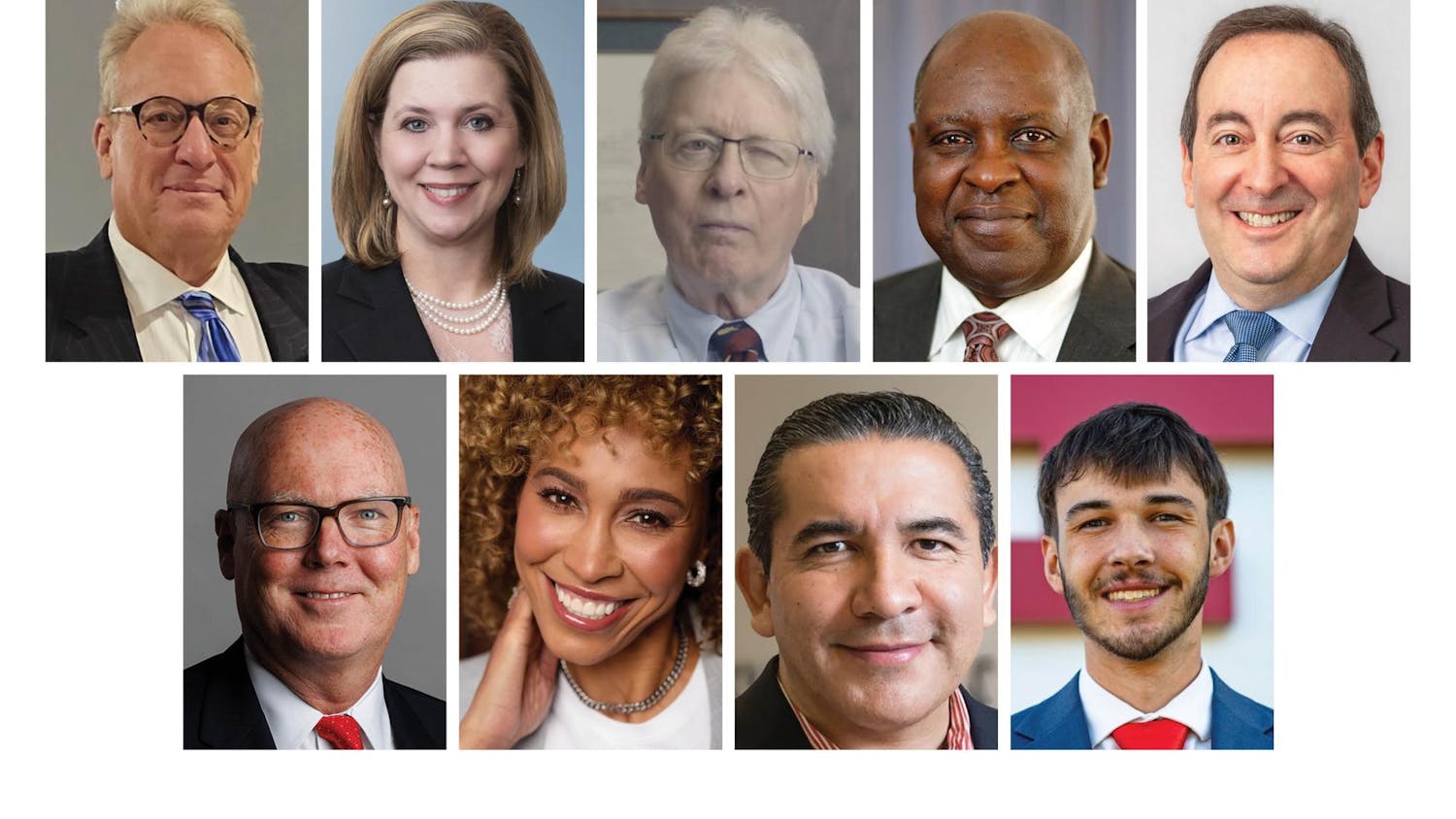If Moh Fall wanted to marry his fiancée, there was one rule: no smoking.
So he decided to quit.
Three years ago, his now-wife took him to a Broad Ripple vape shop and bought him a $25 vape. He smoked it for two weeks, switched to something a little pricier and hasn’t smoked a cigarette since.
May 5, the U.S. Food and Drug Administration passed a new rule extending its control over the American tobacco industry, which created an uproar in the vaping, hookah and cigar industries.
While the FDA has focused mainly on tobacco cigarettes in the past, it now turns its attention to newer forms of smoking, which will now also be closely watched.
The e-cigarette industry could suffer from these new regulations, which will require authorization of all tobacco products made after 2007, according to an FDA press release — a process that could cost up to $1 million per singular product.
Fall co-owns Vape Rush, a local vape shop in College Mall. The store is popular — a 4.9/5 rating on its Facebook page and dozens of positive reviews.
Fall wasn’t happy when he heard about the new tobacco regulations.
“It feels like an attack on the vaping industry,” he said and cited several sections of the new FDA regulations he considers common sense and the vaping industry has complied with for years.
Childproof liquid caps, sealed bottles, no sales to anyone under age 18 — of course they’ve been doing those things, Fall said.
“When you start doing things like requiring companies to have a security service, that’s designed to hurt small businesses,” he said and estimated a number somewhere in the five-figure range.
The new regulations have also effectively cut legal sources of vaping materials from around 200 shops in the state to four.
California makes the best, safest, cleanest products in the country, but it’s going to be hard to get to those now, Fall said.
The FDA will also now require warning labels on all tobacco products, and the tobacco industry will be banned from selling “modified risk tobacco products,” according to the release, including products marketed as “light” or “low” in any substance. All ingredients in tobacco products will now also be reported to the FDA, including any harmful materials.
The FDA has additionally made a conscious effort to keep tobacco products further from children. Until May 5, there were no laws prohibiting the sale of e-cigarettes, hookah tobacco or cigars from minors. Now, the practice is banned, requiring all consumers to be age 18 or older.
To enforce this policy, the FDA also now requires photo ID when purchasing these tobacco products.
While use of traditional cigarettes by youths has declined in recent years, the FDA release stated, their consumption of alternative tobacco products has risen.
A recent survey supported by both the FDA and the Centers for Disease Control and Prevention proved significant increase in e-cigarette use, recording a jump from 1.5 percent of high schoolers using e-cigarettes in 2011 to 16 percent in 2015 — a 900-percent increase.
The same study cited high school boys using cigars at around the same rate as cigarettes.
“We have to do more to help protect Americans from the dangers of tobacco and nicotine, especially our youth,” said Sylvia Burwell, secretary of the U.S. Department of Health and Human Services, in the release. “All of this is creating a new generation of Americans who are at risk of addiction.”
Because of the sheer size of this change and hundreds of pages of new regulatory documents, the FDA stated in the press release that it will publish further regulatory documents to provide more clarity on the matter.
Bloomington vape shop Indy E-Cigs had to decline comment for this story because the more than 400 pages of regulations have been difficult to decipher in such a short period of time.
The new regulations can be flexible only for those who use these alternative tobacco products for medical purposes, like smoking cessation.
Fall himself said he was an asthma sufferer who safely used vaping to cut his smoking habit entirely, but the practice might not be as accessible an alternative to smoking cigarettes as it once was.
He listed off how the customers will suffer: higher prices, worse products, less access, fewer options and selections.
It’s simple, he said.
“Customers are going to get inferior products now.”






